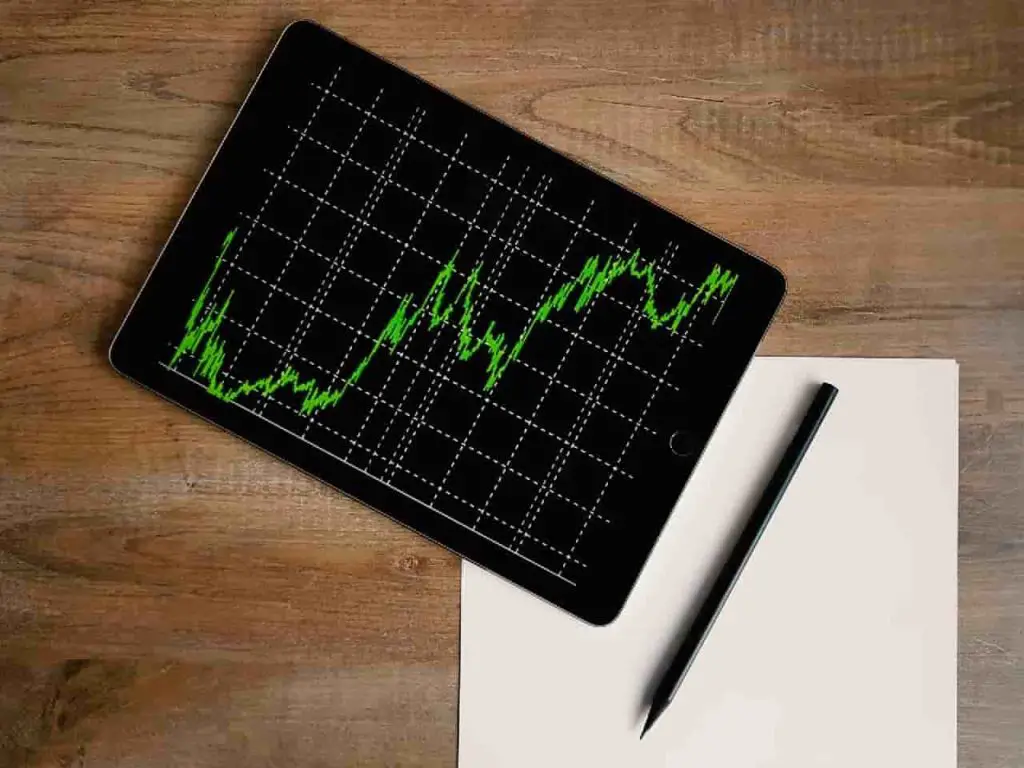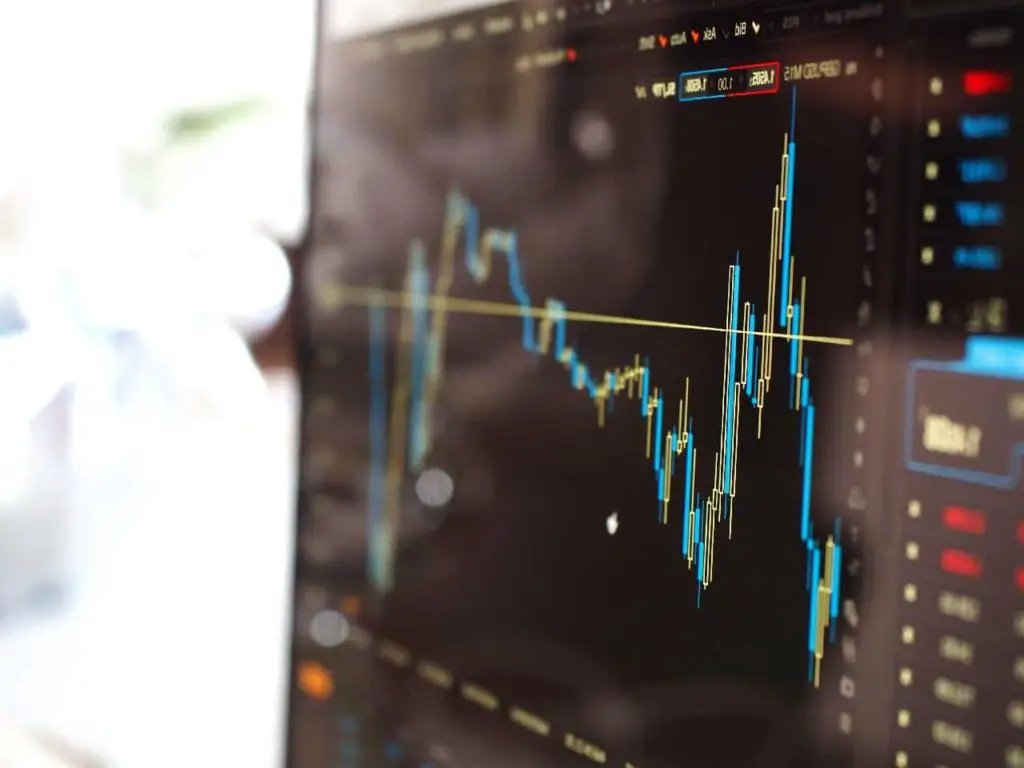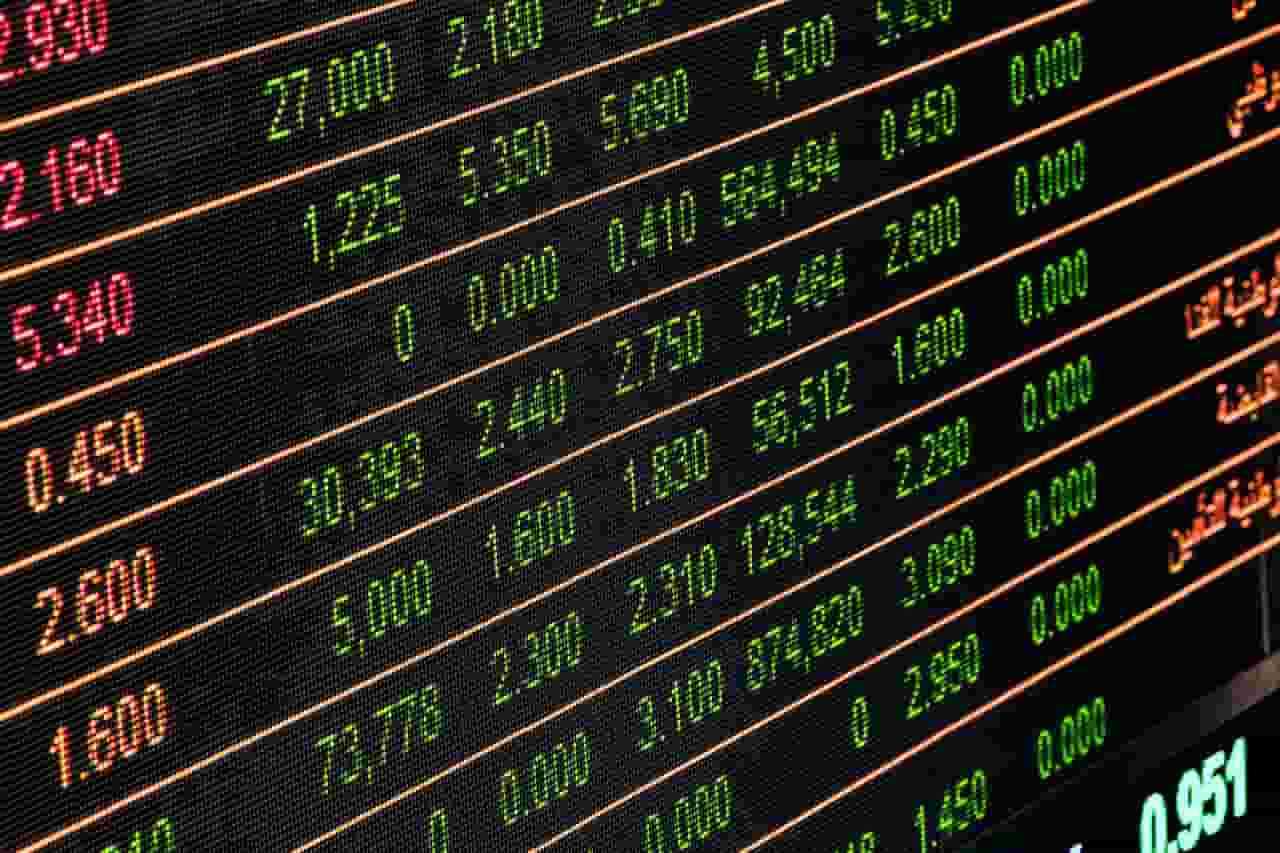Options and futures are both great options for the investor looking to make a profit and escape the “I don’t want to work anymore in an office” mantra. But which one is better?
In this post, we will break down options vs. futures, and you’ll see that they both have their pros and cons. Options allow an investor to buy or sell at a preset price on or before a future date, while futures options allow an investor to take advantage of the market in advance.
When comparing options vs. futures, there are pros and cons of each one, and we will cover those below.
Differences of Options vs. Futures: Which is Better?
Before discussing options vs. futures pros and cons, we first should learn what futures versus options are. As far as which one is better, experts believe options are the better choice.
Futures give investors higher liquidity, lower margin, and less risk than options. However, options offer more leverage for those with enough financial means to take on that risk. This provides significant advantages to options traders with more capital.
Options also offer a wider variety of options, while futures options are limited to commodities like gold and oil. This can also be an advantage or disadvantage depending on the trader’s needs.
Some trading strategies that professional traders use would not be possible with options, but options offer many advantages to traders looking for leverage. If looking how to make $2,000 a month, consider options between the two.
What Are Futures Contracts?
Futures contracts are a type of options contract where the underlying asset is a physical commodity. Futures contracts are known as standardized and traded on an options exchange. Investors use them to speculate or hedge against market fluctuations in the price of items, such as wheat, gold, crude oil, and coffee. Futures can also be considered a form of financial contract that investors sign with a given asset at a predetermined price.

The number of people who day trade futures options contracts are relatively small due to the risk involved. Usually, experienced traders have a substantial advantage.
Is futures option trading difficult?
Future trading is not difficult if you know the basics and do your research. Doing research includes evaluating options spreads, time value, and the volatility of the options contract.
What are some futures options trading strategies to consider?
There are many futures options trading strategies that you can use if you want to trade this type of market. Some examples include:
- Iron Condor Spreads
- Butterfly Spreads
The most common options contract is the options on a stock.
Options contracts are for stocks, which means that they can trade both up and down in price movements of a company’s shares.

Futures options trading is less popular than traditional options trading because it involves higher risk levels. Futures options trading has a high leverage ratio, but also more risk.
You can also use options to trade futures options, which is called a straddle or spread.
A stock options contract allows you to buy and sell shares of a company’s stocks at a specific price point on or before an expiration date.
Futures Contract Example
An example of a futures contract is options on a soybean.
In this contract, the buyer agrees to buy so many bushels of soybeans at an agreed-upon price by a specific date in the future (the expiration date). Your profit and loss will depend on whether those prices go up or down.
What Are Options?
Options contracts are a type of contract where the underlying asset is fixed-income securities like stocks and bonds. The value of options can rise with share prices fall (or vice versa), so they are often traded for hedging purposes.
Trading options in the stock market are similar to trading options on the futures market. Both options traders buy and sell options.
Both an options contract and a future are contracts that obligate two parties to make or take delivery of something at some specified time in the future, such as commodities like gold and wheat.
What can options be used for?
Options are one of the most fluid and versatile trading tools on Wall Street, and there is a variety of things you can do with them. You could buy an option to purchase stocks at $25 or sell options that say shares will expire worthless if they’re not above $30 when their expiration date arrives. Options also offer the potential return of total gains in some cases!
Options contracts typically have three parts:
- call options (giving you the right to buy)
- put options (the right to sell)
- futures contracts, which represent an obligation by someone else who has bought it from another investor. In this case, they owe those investors money after a certain amount of time passes as determined by market forces specifically supply and demand.
Some options and futures options are pretty complicated, while others can be traded easily by an amateur investor with minimal knowledge of the stock market or options trading in general.
To get started understanding options vs. futures, it’s crucial to know that a future is nothing more than a contract between two parties for delivery on a specified date at a price agreed upon when the contract was made. In other words, it’s just like any agreement (think income share agreements). The difference between futures and options contracts is that you’re not obligated to buy or sell anything if you don’t want to. As always, there are some risks associated with this strategy.
Are options traders successful?
Options traders are successful when options are used to hedge, and they can be profitable if options traders buy options at a low price to sell them later.

But there is no guarantee that options contracts will always rise in value or produce profits (or losses) so investing in options is not appropriate for everyone.
What are the popular strategies for options trading?
Some of the popular strategies for options trading include buying options to hedge against the risk of a sudden market movement and selling options, called “writing” or “shorting,” as part of an options strategy that involves speculating on whether share prices will rise (buying calls) or fall (selling puts).
What are call options?
Call options give their owners the opportunity, but not the obligation, to buy a stock at a specified price on or before the options expiration date.
What are put options?
Put options give their owners the right, but not the obligation, to sell stocks at an agreed-upon price until they expire.
What are options exercisable at a certain date?
Options that are exercisable at a specific date meant they could be exercised on or before the expiration date of an option contract.
Options Contract Example
An example of an option contract is a “call option.” A call options contract gives the holder, or purchaser of the options, the right to buy 100 shares in Company XYZ at $50 per share by an expiration date that will be agreed upon by both parties.
Pros of Trading Futures Contracts
There are a lot of pros to trading futures contracts. Some of the pros of trading futures contracts include:
- Hedging against market fluctuations: If you are a farmer, options help protect your farm from supply and demand volatility.
- Leverage: The ability to trade on margin with little cash outlay means that options traders can control large blocks of stock for relatively small sums. This is why they’re sometimes called “cheap stocks” or “poor man’s stocks.” You can use a revolving credit facility to initially fund your margin trade.
- Predicting market behavior: A trader who wants to buy options that will only pay off if the price of a stock goes up may be taking on less risk than someone who buys shares outright because a share’s value can drop even when the company is doing well.
Cons of Trading Futures Contracts
Some cons of trading futures contracts include:
- Initial investment requirement: Futures contracts require a minimum initial investment, which can be very high. For example, options trading doesn’t have such stringent requirements, and because of this, options are sometimes called “cheap stocks.”
- Fixed duration time frame: Future contracts only last for a set amount of time from the contract’s inception date to a future date expiration day. Some traders may want to buy options on assets that will not expire soon. Options don’t have an expiration date, so they’re more flexible than futures when choosing trades with longer holding times.
- Trade costs: Trading fees for options are low compared to those charged by exchanges for buying or selling futures, but exchange fees still apply when you trade.
As you can see, the cons of futures options are not as significant. If you are going to start trading on the securities and exchange commission options are the better choice. If you are thinking Kiplinger’s Personal Finance vs. Money Magazine for additional knowledge, both magazines cover these topics from time to time.
Pros of Options Contracts
Options contracts can be summed up as a right to buy or sell a security.
If you want options contracts, they are cheap and easy to trade with low commissions than the commission rates for futures trades.
Some of the pros of options include:
- Flexibility: Trading options don’t have an expiration date, so traders can choose more flexible options than futures trading because options don’t expire.
- Speculative: Options are used for speculation, and options trading is great because they provide a way to make money without any upfront investment.
- Limited risk: Options have limited risks, so you can be more flexible with your trades than investing in the stock market futures contracts.
You don’t need much capital to trade options compared to other investments like stocks or shares of companies. Make sure you know your bank direct deposit times, so you have access to money.
If you want low-risk opportunities, then options might just fit the bill.
- With only $500 – $1000 available as a starting balance, many investors find that they can change their portfolio on an almost daily basis by taking advantage of all the tiny fluctuations in price which occurs with every company’s stock value fluctuating from minute to minute (or more often).
A final thing to consider is the options have a limited lifespan. In other words, they don’t last forever as futures contracts do, and you can cash out when you want with no penalty for early withdrawal.
Cons of Options Contracts
When looking at futures vs. options, it’s important to note the cons of options when getting sound investment advice.
Some of the cons of options include:
- Options are not regulated: Unlike futures contracts which are subject to the requirements of federal securities laws.
- Options can be riskier than futures: The reason is that they have more leverage (the ability for a small stake in an underlying asset to buy or sell large quantities).
- Options on stocks and stock indexes don’t trade during weekends or regular market holidays: This means that if you want to take advantage of the volatility at those times, your only option is through buying call options. And remember, there’s no guarantee when it comes to trading this type of instrument – just as with any other investment product.
There is no question that futures and options have their differences, but in the end, they are both options for investing.
Advanced traders prefer options, while options can be a good chance for beginners to take their first steps towards investing.
Day Trading Options vs. Futures Pros and Cons
When it comes to day trading futures or options contracts, options have their advantages.
Options may be more appealing to day traders for several reasons:
- The options market is highly liquid so that options can be bought and sold with relative ease at the close of trading (with consequences).
- Options are priced through active underlying markets on an exchange; this means that there’s no need to guess what an options contract is worth.
- Options can be bought and sold at any time during the trading session, which is not valid for future contracts.
- When options are used correctly, they can provide a higher rate of return than futures in commodities markets.
- You can implement swing strategies with options.
The most successful day trader is an options trader, not a futures trader. George Soros is considered one of the greatest.
Options are also less risky than futures; options expire in the short term, and there is no requirement for delivery of an underlying asset at expiration. You should be aware of sequence of returns risk however, if you are building a portfolio.
The most profitable day traders use options with covered calls, writing naked puts, buying put spreads, or other options trading strategies. There are less fixed upfront trading costs and less premium paid for this trading account.

Spread strategies offer their advantages and play an essential role in options trading.
There are more options for the futures market than in the options markets, but you have a higher potential for profit on options contracts. There is a lot to consider between options vs. futures. It’s a great way to build up your retirement if you have none and want to retire on 500k or less.
How Much Money Do You Need to Trade Futures?
To trade futures, the suggested minimum capital is $2500.
This can be withdrawn at any time and does not need to follow the same set of rules, like options trading, which has a “set it and forget” market.
Futures have an expiration date pre-established by the exchanges (Chicago Mercantile Exchange, Forex Market, among others) where they trade; options don’t expire until you decide to do so (you can close it out).
Can You Make $300 a Day Trading Options & Futures?
Yes, however, options & futures have a high level of investor risk.
Should I Trade Forex or Futures?
The difference between Forex and Futures options trading is that options contracts are not standardized, which means they can be traded on more than one type of asset.
Tips for Trading in an Options or Futures Markets
Some tips for futures trading or options trading are to educate yourself about options trading, have a solid risk management strategy in place before you trade options or futures markets, and know your market.
Some great resources for education on futures trading, futures vs. options, and trading commodities options include:
- Options Basics by the CME Group
- Online options and futures trading courses from Investopedia
- The options trader’s bible, “Options As A Strategic Investment” by Lawrence G. McMillan
Additionally, other tips would include looking at options to hedge risk in a portfolio, options for diversification purposes, and options as an alternative way of generating income.
FAQs: Options vs. Futures
Can I buy call options today and sell them tomorrow?
No, options expire at a set time.
Can I buy call options on stocks?
Yes, options are traded over an exchange (like the Chicago Mercantile Exchange) and can be bought or sold like any other security in that market at a specific price.
What is covered calls writing?
This means you hold shares in your account while selling call options against them. If the price goes up before the expiration of those options, then you’ll have to deliver what’s called “writing.” You’re obligated to fulfill this obligation by giving away your shares for less than they’re worth if it comes down to it.
That risk-reward ratio makes sense when trading individual stocks, but not so much with broader markets or indices where many traders might all want.
Can futures expire worthless?
No, futures options never expire worthless.
Is there a time limit with options?
There is no expiration date on options themselves, but they can be bought and sold until they have reached their expiration date or are closed out early. Options don’t have to be settled before the end of trading hours, unlike stocks that must settle by expiry every day at the close of business.
How do I know if my broker offers options?
Ask them! Many brokers offer options as a way for you to start trading and “buy” shares in companies without needing so much money upfront (you only need $100 at most brokerages).
You just put down your deposit fee upfront and then use leverage when buying more shares later because now you’re borrowing from yourself against this amount.
Why Are Futures Expensive?
Futures are more expensive because they involve a substantial amount of risk. This is because you cannot get out of your options early. So if the market and price movement goes against what you were hoping for, there’s no way to adjust it in time before expiration, and all options will expire at their preset value.
Why Would You Sell a Futures Contract?
Say you believe that the price of a security will go up in the future and do not want to wait around for it. Therefore, instead, you could sell options contracts on this same investment.

There are certain risks when selling options, too, but your profits outweigh those risks because options can be sold anytime before expiration, whereas futures cannot.
Related Questions:
Can You Make a Living Trading Currency?
Many make a living by trading forex by following certain practices and strategies. Becoming knowledgeable in many areas often lead people to living off trading currency.
Wrap Up
You know the key differences and the pros and cons of options vs. futures. It is a buyer beware situation where options are more flexible and can be sold anytime before expiration, whereas futures trading cannot.
Whether you want to trade stocks or become a commodity trader in the underlying market, be sure to do market research. Know which option is the better fit for you when comparing futures trading vs. options trading. They both can be significant financial instruments how to build wealth from nothing. The bottom line comes down to underlying security and personal comfort level, even for an experienced trader.



